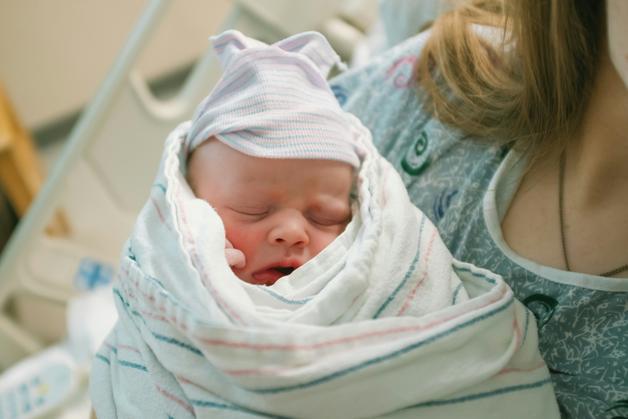Growing belly, unending bathroom trips, persistent heartburn—sleeping during late pregnancy might resemble a marathon with obstacles rather than a gentle night’s rest. As the months progress, many parents report waking multiple times, switching positions endlessly, or battling vividly intense dreams. Why does sleep become such a puzzle during this stage? The answers blend biology, emotion, and the little kicks that arrive precisely when you’re drifting off. Let’s untangle the medical explanations, scientific recommendations, and practical strategies to help you rest better—yes, even during that final stretch before baby arrives.
Sleeping during late pregnancy: why is sleep so different now?
Watching the clock at 2 a.m.? It’s not just coincidence. Hormonal storms churn relentlessly in late pregnancy—progesterone, for one, acts as both a drowsy friend and a troublemaker, often causing lighter sleep interrupted by frequent awakenings. Oxytocin plays its part too, helping labour later, but also nudging your sleep toward fragmentation. And then there’s the growing uterus pressing on your bladder, bowels, and blood vessels, making nocturia (that persistent urge to urinate by night) practically inevitable.
Many mothers notice their sleep architecture shifting: deep sleep phases decrease, while REM and light sleep become more prevalent. This means you’re bouncing between sleep stages—often waking during transitions—with less of the profoundly restorative rest your body craves. Add to this the musculoskeletal pains, stretching ligaments, and changes in breathing, and it starts to become clear why sleeping during late pregnancy feels so different.
Common sleep disruptors: from fuzzy dreams to restless legs
Sleep fragmentation in this period rarely comes from a single cause. More often, it’s a cascade:
- Heartburn: The slowdown in digestion, coupled with upward stomach pressure, brings acid reflux at the most inconvenient hours—especially when lying flat.
- Frequent urination: The uterus encroaches on the bladder space, prompting those many nighttime trips.
- Restless legs syndrome and cramps: An uncomfortable, crawling sensation or sharp muscle spasms strike without warning, disturbing even those precious moments of rest.
- Noisy breathing: Snoring and, in some cases, sleep apnea become new realities for some due to hormonal changes and weight gain, sometimes accompanied by morning headaches.
- Baby’s dance parties: Fetal movements don’t always follow your timetable—baby’s twists can jolt you wide awake.
- Anxiety and dreams: Emotional shifts, worries about labour, and hormonal surges often fuel vivid dreams or nightmares, making return to sleep a challenge.
Does this endless list feel familiar? For so many, sleeping during late pregnancy means becoming intimately aware of each discomfort and disturbance.
The medical effects of poor sleep in pregnancy
Quality sleep is more than a luxury in late pregnancy—it’s a pillar for physical and mental health. Research underscores clear links between insufficient sleep and increased rates of gestational diabetes, preeclampsia (elevated blood pressure with possible severe consequences), longer labour, and a greater chance of intervention like caesarean delivery. Deep sleep is essential for immune support, memory formation, and maintaining blood sugar balance.
Not only can fragmented rest increase risks during labour and birth, but it may also impact fetal growth. On the psychological side, poorer sleep is tied to higher levels of anxiety and perinatal depression—moods that can colour the entire pregnancy and even spill over into postpartum months.
Practical strategies for more restful nights
Looking for relief? A few scientifically backed adjustments can genuinely help:
Taming nocturia and boosting comfort
- Try restricting large fluid intakes close to bedtime (but hydrate well throughout the day).
- Always empty your bladder before sleep. Some even set a pre-bed routine for this.
- Elevate legs for short periods in the evening to reduce swelling—never just the mattress.
- Pregnancy pillows—under the belly, behind the back, between knees—offer crucial support.
Easing heartburn and digestive woes
- Opt for smaller, more frequent meals; steer clear of spicy or heavy foods at night.
- Remain upright after eating—lying down too soon is a recipe for heartburn.
- A wedge pillow can subtly elevate the upper body, helping gravity do its job.
- Safe antacids may be considered, after consulting a healthcare provider.
Wrestling with cramps and restless legs
- Gentle stretching, particularly of calves and feet, can sometimes prevent those painful spasms.
- Prenatal yoga, swimming, or evening walks help balance muscle tension.
- Warm baths before bed promote relaxation, and may ease restless sensations.
- If symptoms are intense or persistent, check with your doctor about potential iron or mineral deficiencies.
Managing anxiety, nightmares, and emotional turbulence
- Establishing a consistent bedtime routine can prime the body and mind—for example: soft lighting, calming music, reading, or a brief meditation.
- Journaling worries or discussing them with a supportive partner often brings perspective and reassurance.
- If insomnia persists, avoid lying awake—try a non-stimulating activity in low light until sleepiness returns.
Optimising your sleep environment
- Prioritise a room that’s cool, well-ventilated, and dark. Blackout curtains block light; soft, indirect lamps prevent overstimulation during late-night interruptions.
- White noise machines or fans create a gentle hum that can mask external sounds.
- Limit screen exposure an hour before bedtime—blue light can confuse the natural sleep-wake rhythm.
Sleep positions: what science recommends
Turning from side to side at night? Medical evidence consistently supports sleeping on the left side in late pregnancy: it facilitates the best possible blood flow to the placenta, maximising nutrient and oxygen delivery to baby, and may reduce swelling in ankles and feet. If left-side sleeping becomes painful, right side is still considered safe, but lying flat on your back should be avoided after 28 weeks (this position can compress the inferior vena cava, reducing vital blood return to the heart and placenta).
Don’t worry if you wake to find yourself on your back—just shift gently to your side again. As for stomach-sleeping, by late pregnancy, most find it simply uncomfortable and unnecessary to force.
Supporting sleep with routines, environment, and activity
In the whirlwind of late pregnancy, routines and simple habits make a surprising difference:
- Keep to set bed and wake times, even on weekends, to anchor your body clock.
- Daytime naps are fine, but should be brief and earlier rather than late.
- Phones, tablets, and any bright screens—park them away from your pillow.
- Gentle physical activity during the day (think prenatal yoga or stretching) supports both mood and nighttime fatigue. Overexertion, however, can backfire.
- Evening relaxation rituals: warm shower, soothing scents (if medically approved), slow breathing exercises. Sometimes the anticipation of sleep is itself calming.
Partner and family support: sharing the night-time load
Late pregnancy is rarely a solo venture. Partners or family can help adjust pillows, manage tasks that might otherwise interrupt your rest, or simply offer encouragement on tough nights. Sharing sleep “duties” (once baby arrives), or even loosely planning who tackles which tasks if the baby wakes, spreads the responsibilities and prevents chronic exhaustion from landing entirely on one person’s shoulders.
Emotional support counts too: a listening ear about your sleep frustrations, an extra glass of water, or a reassuring word before bed can sometimes change the quality of an entire night.
When to seek medical advice for sleep problems
Persistent insomnia, loud or gasping snoring, restless legs that won’t subside, or severe fatigue—these are signals worth sharing with your healthcare provider. Sometimes blood tests uncover deficiencies in iron or minerals; occasionally a sleep disorder (like untreated sleep apnea) may need assessment via sleep study. Timely intervention not only eases discomfort but may protect against complications like gestational hypertension or poor fetal growth.
Remember, addressing sleeping challenges now sets the stage for safer labour and swifter postpartum recovery.
Anticipating postpartum sleep changes
Sleep with a newborn? It transforms again: fragmented, unpredictable, and reliant on your baby’s rhythm. Try to nap when the baby does (short bursts of rest quickly add up). Share night-time care whenever possible, and keep your environment calm and dark. Accepting practical help from others—even just a hot meal or half-hour break—can feel restorative.
Later, as baby develops, introducing gentle bedtime rituals and regular patterns gradually helps the whole household find a little more peace, one night at a time.
Key Takeaways
- Sleeping during late pregnancy often becomes a struggle, but understanding the underlying causes brings relief within reach.
- Emotional and physical discomforts—back pain, frequent urination, vivid dreams—can agitate sleep, yet specific routines, posture adjustments, and trusted medical advice offer real solutions.
- Prioritising side-lying sleep (especially the left) improves placental blood flow and maternal comfort.
- Family and partner involvement lightens the burden—practical support and encouragement smooth the road.
- Persistent sleep problems or extreme fatigue should prompt professional input, protecting both maternal and baby’s health.
- For tailored guidance and access to free health questionnaires for children, download the application Heloa.
Questions Parents Ask
Is it really safe to sleep on the right side during late pregnancy?
Absolutely. While left-side sleeping supports the best possible blood flow for baby and can minimise swelling, resting on the right side is generally safe too. The vital thing is to avoid lying flat on your back for extended periods—this can press on major blood vessels, reducing circulation. Rotate gently between sides as needed for comfort, and don’t worry too much if you wake up on your back, simply return to your side.
What if exhaustion hits hard even after trying everything for good sleep?
You may notice heavy tiredness despite all the best rituals—sleeping during late pregnancy can challenge even the most disciplined. Short, strategic naps or taking rest breaks during the day sometimes bridge the gap. Hydration, nutritious meals, and gentle physical activity can help. If fatigue remains overwhelming, it’s important to discuss with a healthcare professional for support and to rule out underlying concerns.
Are herbal teas or aromatherapy safe for better sleep while pregnant?
Many enjoy herbal teas or gentle scents to unwind, but not every natural product is safe in sleeping during late pregnancy. Certain herbs and essential oils may not be suitable, so always check with a medical professional before starting any new teas or aromatherapy. Often, a soothing routine, cool and dark room, and mindful breathing make a safer difference for restful nights.
Further reading:









